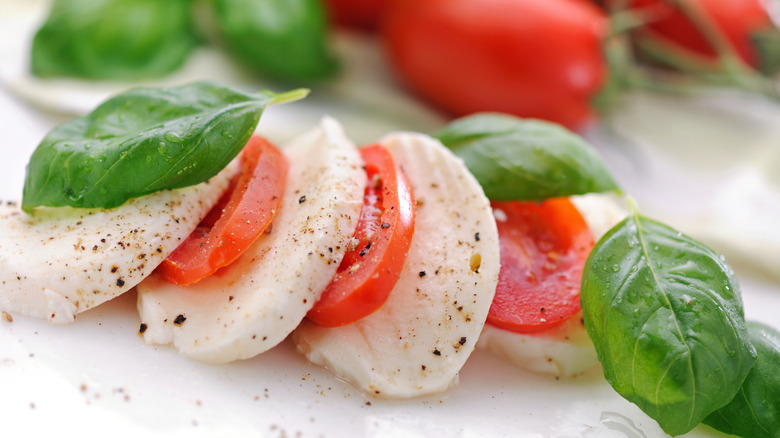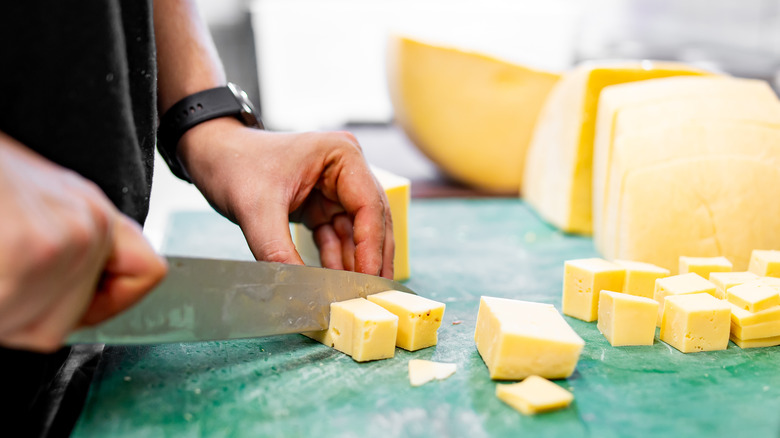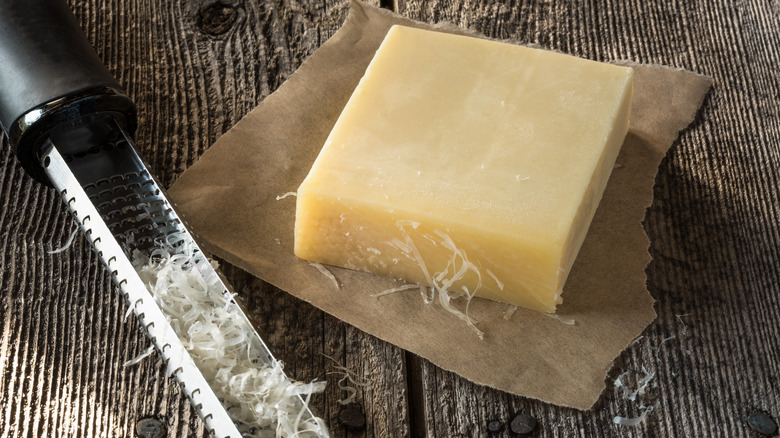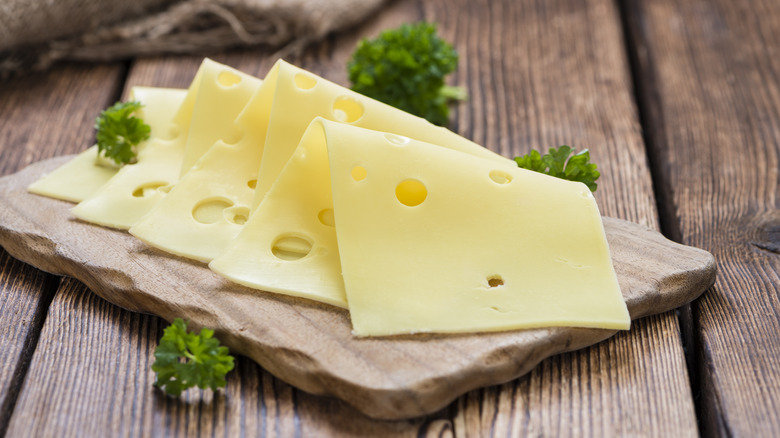Healthy Cheeses That Can Help You Lose Weight
When your clothes begin feeling a little snug or you notice a few extra pounds on the scale, you know it might be time to cut back on some of your favorite culprits like chicken wings and french fries. Your morning scone from the local bakery might need to be replaced with some oatmeal and fresh fruit, too. And say goodbye to those mozzarella sticks, at least until you reach your goal weight.
But you don't have to say goodbye to cheese altogether if you want to lose weight. Sure, fried mozzarella sticks might not help you trim inches off your waist, but the right kind of cheese paired with fruit or nuts can make a healthy afternoon snack to keep you from overeating at dinner.
What kind of cheese is healthy? Certainly not processed cheese like American cheese or cheese spreads. Better choices are the harder cheeses because they tend to be lower in fat. That means that the decadent Brie you love smothered over crostini doesn't make the cut. You'll also want to choose a cheese that's higher in protein per ounce. (By the way, some cheeses have more protein than meat.)
Fat-free mozzarella cheese can reduce your appetite
Adding more protein to your diet can help you lose weight because it triggers the release of the GLP-1 hormone, which helps you feel full. If GLP-1 sounds familiar, it's how the weight-loss drug Wegovy works and how Ozempic controls your blood sugar. A 28-gram serving (about an ounce) of nonfat mozzarella cheese has 9 grams of protein. That's a lot of protein with just 44 calories.
When you stick to low-fat or nonfat cheese that's high in protein, you're more likely to consume fewer calories later. A 2018 article in the Journal of Nutritional Science had people eat either high-protein/low-fat cheese, high-protein/high-fat cheese, or low-protein/high-fat cheese with a serving of bread and juice. Three hours later, they were offered spaghetti Bolognese. When they ate the high-protein/low-fat cheese, they ate significantly less Bolognese. They also said the high-protein/low-fat cheese made them feel more full. Consider some nonfat mozzarella cheese topped with sliced tomato and basil as an appetizer to help you eat less for dinner.
Sharp cheddar may help you lose body fat
The holiday season can present trouble for people trying to lose weight. Some might also feel a little more gloomy due to the lack of sunlight or loneliness. That's where conjugated linoleic acid (CLA) might help. CLA is a fatty acid that can boost enzymes and proteins that metabolize fat. CLA is found in cheese and meat, but you can find supplements made from safflower oil.
According to a 2007 study in the International Journal of Obesity, a 3.2-gram CLA supplement helped overweight people reduce their body fat in six months. Compared to those who received a placebo, the CLA group also didn't gain as much weight during the holiday season. The group also had fewer negative emotions.
Sharp cheddar cheese has the most CLA among the harder cheeses with 49 milligrams. You'll want to choose the full-fat version of this cheddar to get the CLA. Nonfat and low-fat cheddar don't have this polyunsaturated fat. However, the full-fat cheddar has 115 calories and 5.4 grams of saturated fat. Pair your cheddar with a crisp apple.
Gruyère cheese is high in calcium
Although parmesan and romano are higher in calcium, both these cheeses are some of the highest in sodium. Besides, you typically use small amounts of these hard cheeses in pasta dishes rather than eating them alone. Gruyère cheese, with its origins in Switzerland, is a nutty yet sweet cheese to improve a grilled cheese sandwich. An ounce of Gruyère cheese provides 283 milligrams of calcium, which puts you at 22% of your daily recommended calcium for the day. You'll get almost 200 milligrams of sodium, so it might not be the best choice if you have high blood pressure. However, that's just half the sodium of parmesan and romano. Gruyère also has 8 grams of protein.
Calcium is typically known for helping you build strong bones and teeth, but it might also aid in your weight loss. In a 2010 study in The American Journal of Clinical Nutrition, people who boosted their calcium intake from dairy foods lost more weight than people who ate less dairy.
Swiss cheese is high in protein, calcium, and CLA
You can't forget Swiss cheese while you're trying to lose weight. Swiss cheese might not top the list in terms of calcium, protein, or conjugated linoleic acid (CLA), but it ranks pretty high in comparison with other cheeses. An ounce of Swiss has more than 7 grams of protein, 249 milligrams of calcium, and 45 milligrams of CLA. Unlike Gruyère, Swiss cheese is low in sodium with just 54 milligrams. Swiss cheese is also a good source of probiotics, which help improve your gut health.
A 2020 review in Preventive Nutrition and Food Science found that people with a more diverse gut microbiome don't gain as much weight over time. The bacteria in your gut are important to help digest and metabolize fat and amino acids. Changes to your gut health can also affect your hunger and satiety hormones, increasing your appetite and causing you to feel less full.
More dairy foods to lose weight
If you're a postmenopausal woman, don't think that you have to eat cheese every day to lose weight. You can incorporate other dairy foods such as yogurt and milk as part of a calorie-restricted diet. A 2019 study in Nutrients had women in postmenopause either consume four to five servings of low-fat dairy a day or take calcium and vitamin D supplements while following a low-calorie diet. A third group also followed the low-calorie diet but didn't include dairy foods or supplements. While all three groups lost weight, those who ate low-fat dairy foods lost more fat while maintaining their lean body mass.
Dairy foods are also important to battle obesity during adolescence, according to a 2020 study in Pediatric Obesity. Adolescent girls who included four servings of dairy a day lost more fat mass and increased their muscle mass compared to girls who had less than two servings of dairy.





